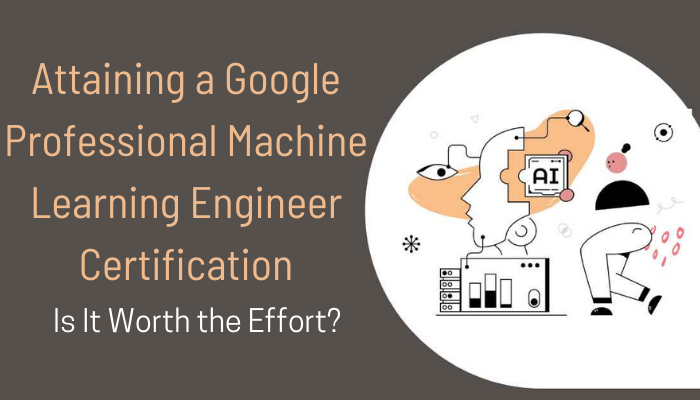Let’s start by clarifying that this is a guide that does not contain questions or answers. It is an orientation based on my experience during the preparation and presentation of the Google Cloud Professional Machine Learning Engineer certification exam.
First, it is essential to understand the exam and its structure. Being a Google Cloud certification, Google Cloud Platform (GCP) cloud-based solutions will be assessed. Google Cloud certifications are at two levels: Associate and Professional. Suppose it is the first time on this platform. In that case, the recommendation is to start with the associate-level certification since it is considered the starting point for professional accreditation. With a few months of experience on the platform, it can be achieved. On the other hand, Google recommends having several years of experience in the industry and one year of experience in the Google platform to start certifications at the professional level.
A Professional Machine Learning Engineer designs builds, and productions ML models to do business challenges using Google Cloud technologies and knowledge of proven ML models and techniques. The ML Engineer is skilled in model architecture, data pipeline interaction, and metrics interpretation and needs experience with application development, infrastructure management, data engineering, and security.
This Professional Machine Learning Engineer is “proficient in all aspects of” Machine Learning. All aspects. Not just what relates to Google Cloud. That is the very most significant thing to know about this cert. Sure, it is a Google Cloud certification, and it does require a fair bit of GCP ability. But this will also test you on the way more than just the Google Cloud-specific stuff. I think this Machine Learning Engineer is the Google certification with the most non-Google content. And that also gives it great reach beyond GCP, should you ever require to work multi-cloud or hybrid.
Why Are Google Machine Learning Engineers In Demand?
Businesses today are awash in data, from customer interactions to IoT networks. Trying to process all that information manually is like drinking from a fire hose. Machine learning has become necessary for taking full advantage of a company’s data.
Applications of Machine Learning Engineers are as varied as the data itself. A few typical applications include:
- Image and Speech Recognition: Machine learning excels at auto-tagging images, text-to-speech conversions, and anything else that requires turning unstructured data into useful information.
- Customer Insight: Association rule learning, the way Machine Learning software makes connections, drives the algorithms at the heart of e-commerce, representing consumers who buy product A that they might like product X.
- Risk Management and Fraud Prevention: Machine Learning algorithms can analyze vast volumes of historical data to make financial predictions, from future investment performance to the risk of loan defaults. Regression testing also makes it easier to spot fraudulent transactions in real-time.
How to Become a Google Machine Learning Engineer?
Becoming a machine learning engineer needs hard work and a commitment to achievement. If you are interested in becoming a machine learning engineer, the following steps can give an outline for getting started on your career path:
1. Consider an Advanced Degree
You could get started as an engineer with a bachelor’s degree in data science, electrical engineering, software engineering, or another technical field. If available, you will want your concentration to include coursework compared to machine learning foundations, applied data science, statistical computing and modeling, data mining, and other engineering and machine learning principles.
However, you may require to consider extending your degree to the master’s level in the computer sciences, as you will want to demonstrate prowess in computer programming. While it is not technically needed, the complex knowledge required to excel in this field of study would be well represented by advanced education and make you more appealing to employers.
2. Gain Work Experience
You can gain experience in internships, entry-level positions, and building portfolios of work with various data and computer sciences applications. Build a portfolio of your work as you go, and aim to include multiple applications of your coding skills, architectural program designs, analysis, and other machine learning uses.
3. Get Google Certified in Machine Learning
Many machine learning engineers want to get certified in various subfields like cloud computing, software engineering, data architecture, or system design. These types of certifications demonstrate an engineer’s expertise and can lend a competitive advantage during your job search.
Conclusion
Google Cloud Professional Machine Learning Engineer Certification is one of the most challenging exams in the market. This certification tests the knowledge of participants and tests the practical implementation of the various tools on the Google Cloud Platform. By clearing this exam, you would surely get an increment in your salary or get an excellent job within the market. GCP is a leader in AI & ML and is certified by Google as the best thing you can have in your career.
